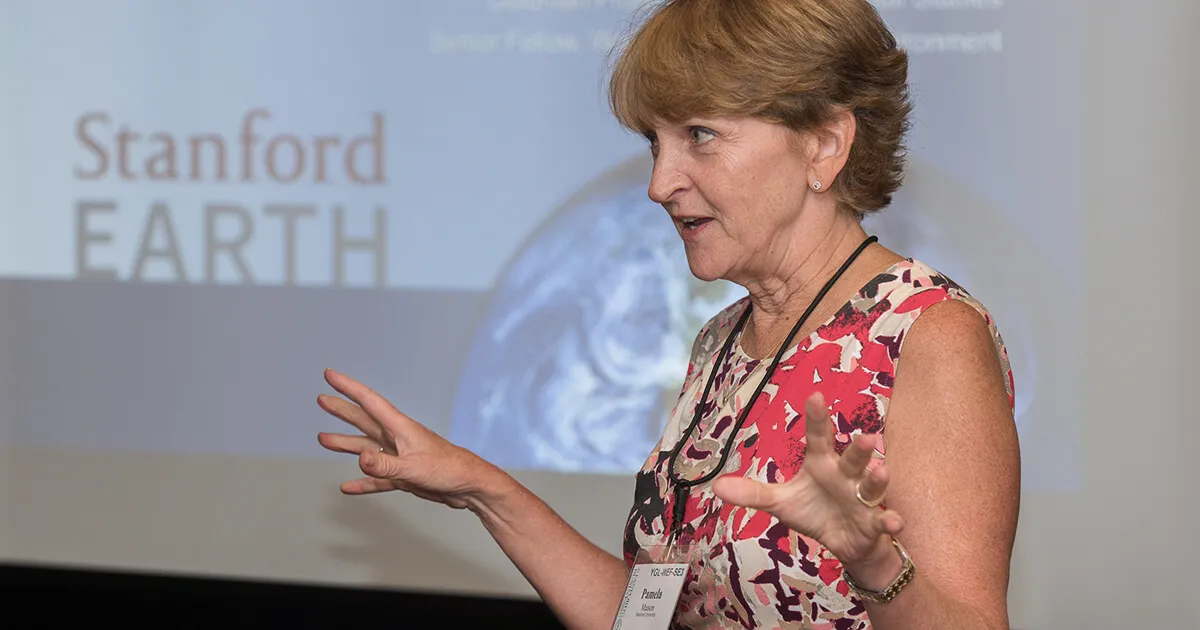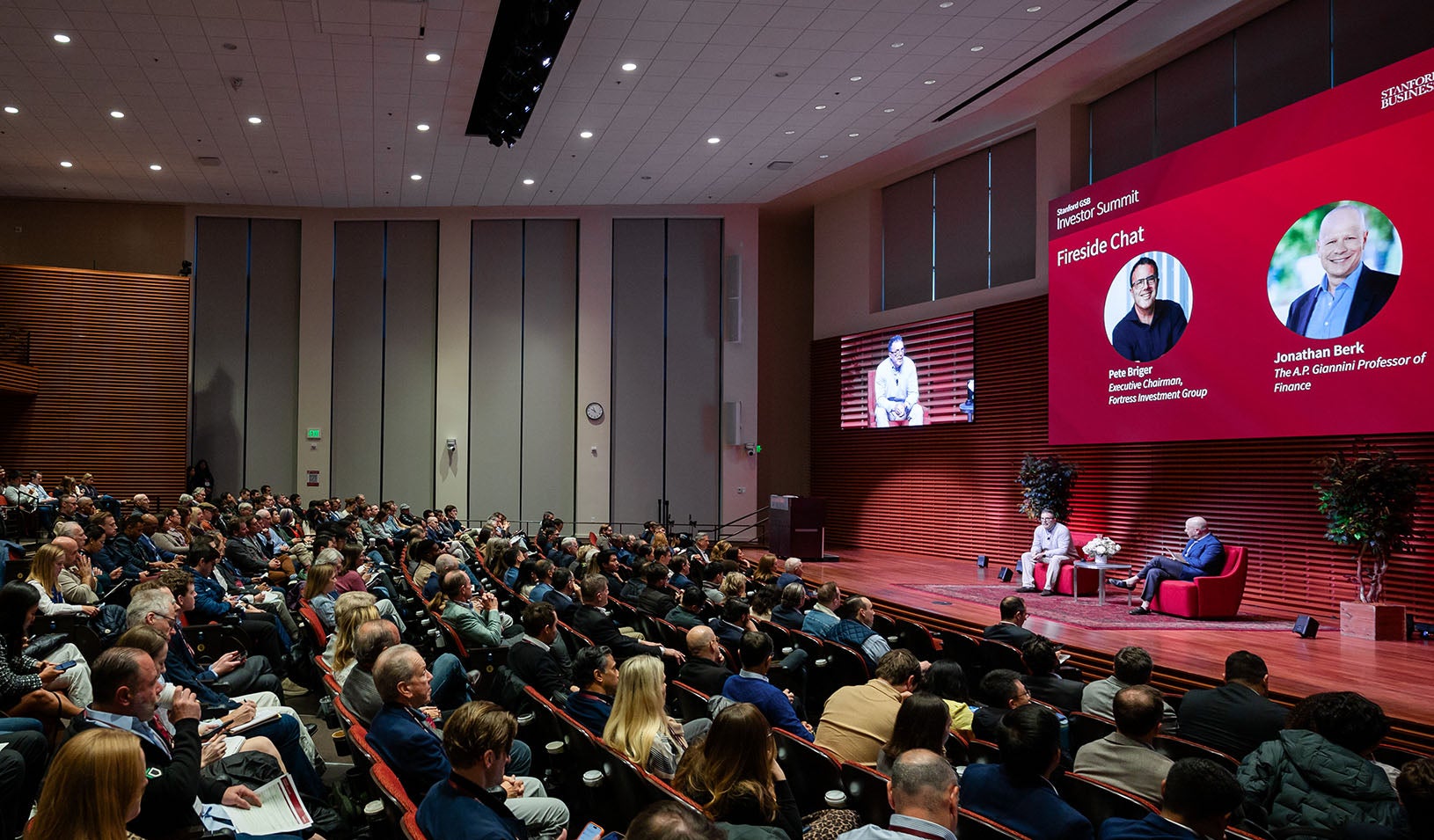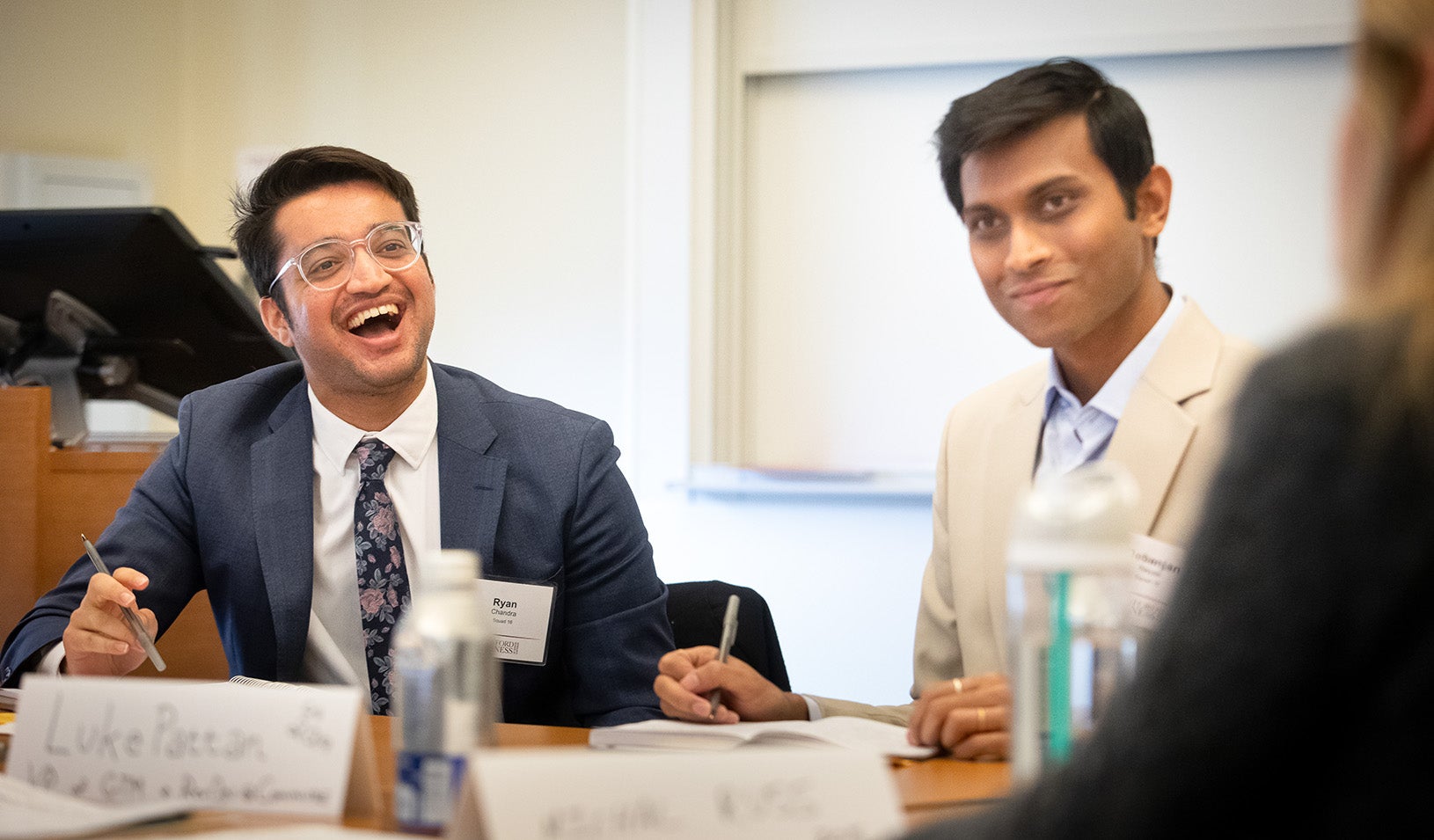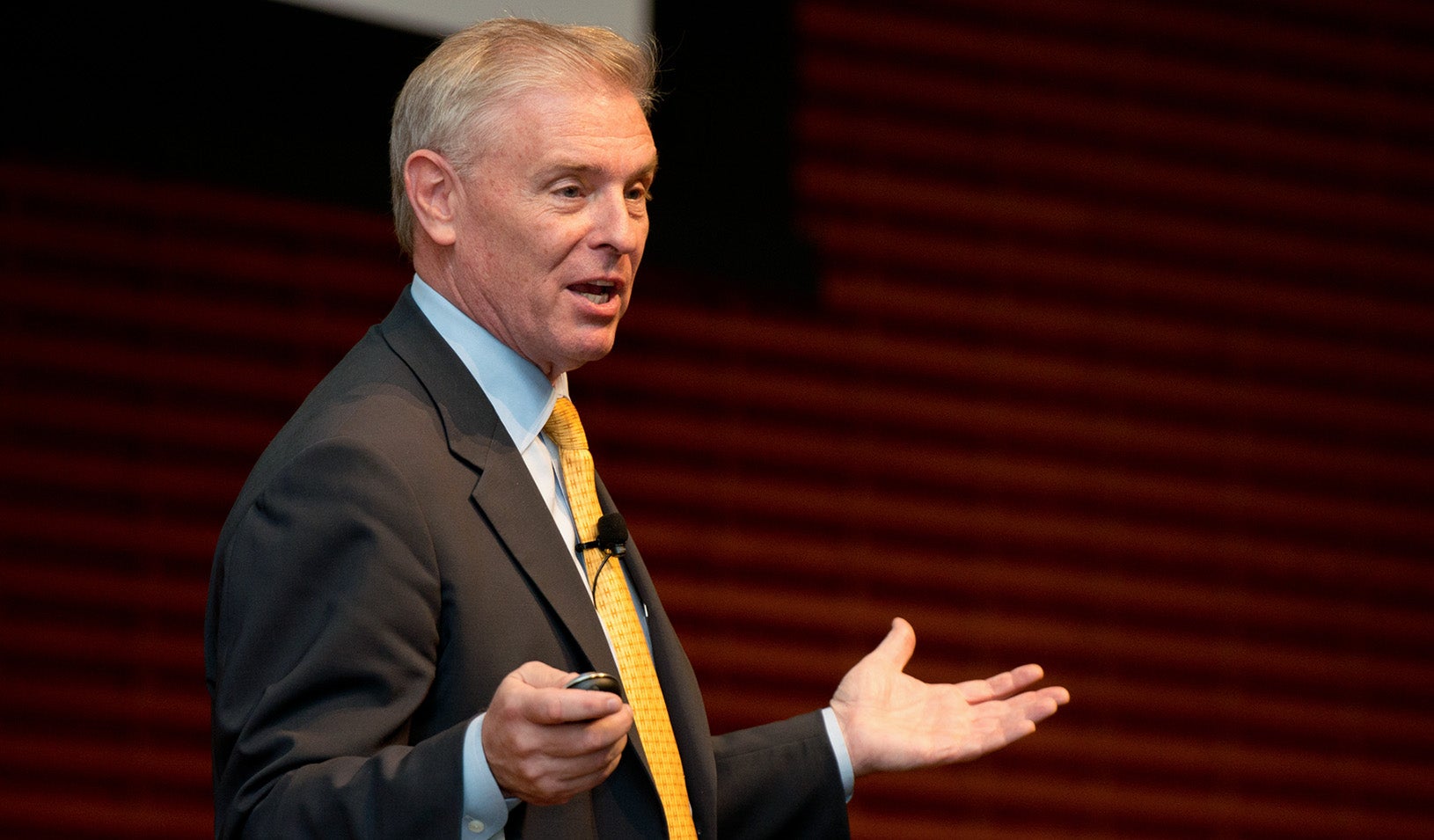September 12, 2016
Forty-three Young Global Leaders selected by the World Economic Forum from 22 countries gathered at Stanford last week to explore how to design and lead practices, partnerships, and organizations essential to building a sustainable future.
As the planet strains under a rapidly growing population now over 7 billion and expected to grow to 11 billion by the end of the century, the program focused on helping leaders define a framework to achieve “intergenerational well-being,” in which global needs for natural resources, shelter, food, water, and social systems, such as education, health care, and good governance, are met not only for today’s population but in the future.
Participants represented a variety of organizations, including the World Trade Organization, a farming and food production company in Africa, a Saudi Arabian economic policy organization, a nonprofit aimed at empowering underserved women in the developing world, BP Ventures, and the World Bank’s Innovation Labs. The World Economic Forum chooses Young Global Leaders for their significant leadership achievement and commitment to society at large.
“These participants have an unprecedented opportunity to radically shift the way business is done, so that all people – across generations – can thrive,” said Stanford School of Earth, Energy, and Environmental Sciences Dean Pamela Matson, who co-directed the program with then Graduate School of Business organizational behavior professor Larissa Tiedens and Stanford Earth professor of the practice Julia Novy-Hildesley. “Young leaders today are the first generation to understand the magnitude of current challenges around resources and sustainability,” said Matson. “They may be perhaps the last generation with time to put in motion the changes needed to secure intergenerational well-being.”
The custom program, Transformative Leadership for Sustainability and Resilience, took place July 24 through July 28 at Stanford Graduate School of Business. It is the product of a new curriculum developed by the School of Earth, Energy, and Environmental Sciences to teach change leadership for sustainability. The Stanford Earth curriculum was developed over several years of engagement with corporate, nonprofit, and governmental leaders, as well as Stanford faculty and students who described the attributes and skills needed in the next generation of recruits. The new Stanford Earth curriculum also forms the basis for new graduate and undergraduate courses and programs to be offered beginning in the 2016-17 academic year, including a planned master’s program in Change Leadership for Sustainability. The July executive program for the World Economic Forum’s Young Global Leaders was developed in conjunction with the business school with the YGL audience specifically in mind. “It has helped provide a context and tools and frameworks in order to be able to advance the topic,” said participant Sadiq Gillani, chief strategy officer with the Lufthansa Group in Germany.
Among other things, the program focused on how to define and measure sustainability – Is GDP a useful measure of well-being for any given society? – and described different methods of measurement. Other topics focused on leveraging big data to understand everything from agricultural performance to levels of poverty across regions, sustainable sourcing of resources such as water, and how to scale innovation. “Learning how to approach problems in a three-dimensional way has been pretty enlightening,” said Michael Lefenfeld, cofounder of SiGNa Chemistry, a New York-based maker of environmentally friendly chemicals used to improve petrochemical refining and manufacturing production processes.
The executive program’s interdisciplinary curriculum drew on Stanford Earth science and Stanford GSB management faculty, as well as practitioners, combining Stanford University’s expertise in innovation design, sustainability science, and leadership. “It’s opened the breadth of our knowledge to different sustainability problems and how to attack them in novel ways using new thinking,” said Lefenfeld.
The program aimed to enable participants to radically accelerate the transition to a sustainable and resilient society by developing their capacity to:
- Understand the diverse assets that must be managed and balanced to pursue sustainability and solve complex, global problems;
- Lead behavior change and problem solving among individuals, teams, and organizations;
- Identify key leverage points and design and implement interventions that transform systems at scale, with a goal of long-term social well-being.
For more information, email Barbara Buell.
For media inquiries, visit the Newsroom.



